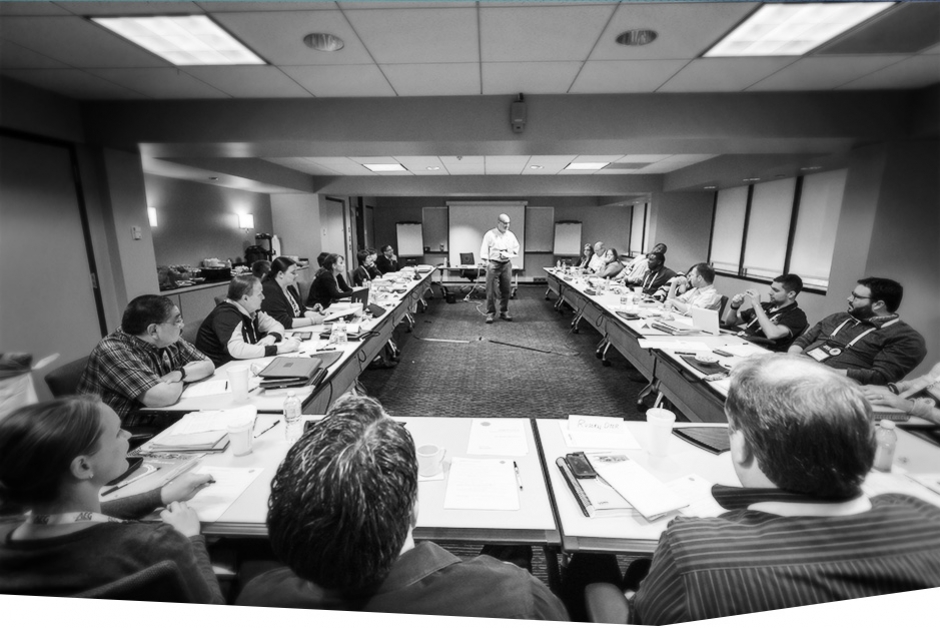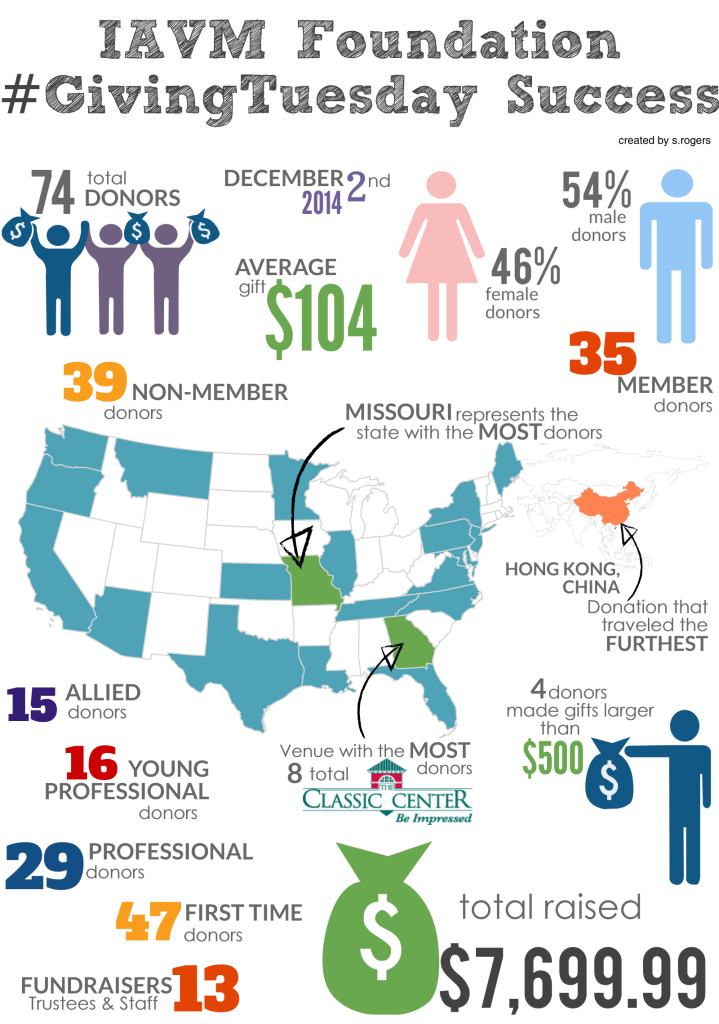What’s Missing From Your Information Arsenal?
We venue managers share many similar issues, concerns, and goals regardless of our type of venue. The safety of our participants, ticket holders, partners, employees, and everyone else involved with our operations, as well as the security of our venue itself, are topics that concern us every day.
We worry about each and every event, regardless of size, location, and subject matter. We also worry if we are doing enough, and what the next big threat will be to our venue, or to any other venue—what happens to one of us happens to all of us.
And now, as we look forward to 2015 and beyond, we ask ourselves what’s missing from our venue management information arsenal. Safety and security specifically comes to the forefront as we look at how we can better protect our charges and further help our venue colleagues make better, more informed decisions.
What helps us make better decisions? Experience? Information? Both?
Nothing compares to experience, but that may not always be the case with safety and security issues. What happened in Boston during the marathon didn’t happen anywhere else previously. All venue managers took notice, and the people involved with that epic nightmare have shared their stories, response tactics, and more to help us all be better prepared should such a disaster repeat itself. They shared their experience so that we can all learn from them, adopt what might work for us, and improve our overall service and performance in new best practices. Mature industries share their knowledge.
It’s truly incredible what kind of information about safety and security is available online. You can Google just about anything, and in less than a second receive loads of results—however, BUYER BEWARE. How do you know if the information is reliable, accurate, or even applicable to venue management?
That’s where VenueDataSource comes in. How valuable is a mass of information that you must vet for yourself compared to information received ONLY from industry experts and professionals?
Shortly after you return to your offices after the holiday break, you will receive an opportunity to vet IAVM’s body of safety and security knowledge. You’ll receive an invitation to review the major security operating practices and issues every venue security professional faces and compare these to your own practices. Your security professional will be able to complete this survey in less than 15 minutes, and the results will give your team the ability to compare your venue’s practices with your peers and with the best in the business. And if your venue completes this brief survey, you’ll receive the report free.
This vitally important survey will help your 2015 to be your best year yet in the industry. You will be armed with the information and the tools to succeed.
And speaking of success—VenueDataSource has just released facts and findings from the 2014 venue industry Sustainability Report, available from IAVM headquarters. Just email VenueDataFrank at frank.ingoglia@iavm.org. This report is our final release for 2014, another great year for sharing industry research that helps you do your job.
As always, you can find us on this monthly blog, on Twitter @VenueDataFrank, in weekly newsletters discussing trends, facts, and asking poll questions, at the sector conference and VenueConnect—everywhere you VDS, you’ll find us. No matter where you go, there we are.
iCommit: Let’s Build an Even Stronger IAVM
Our successful get-a-member campaign, iCommit, is under way. Reaching 5,000 members is within our grasp. Just a few years ago, who would have believed this was possible? With your help, we can get very close if we add 600 new members by March 31, 2015. More members means more collaboration, a bigger and more diverse network for you, and a greater pool of experts to create inspiring and motivating educational sessions at conferences.
Let’s look at it this way: If every member strives to add just one new member, we could DOUBLE our membership by March 31—certainly by the end of 2015. How exciting!
With the new IAVM Venue Group Membership gaining momentum, involvement is very easy and affordable. As of today, we have 22 venues that have signed up. So talk up this program also.
Will you commit to help IAVM build a stronger association and a bigger network of like-minded leaders? We hope so! You did an amazing job last year, so let’s continue working together to grow your association.
Click here for the new recruitment tool “Why IAVM?” This will be an excellent resource in encouraging new members to join.
What’s In It For You?
 Besides feeling good about supporting the industry, for each new member you refer and who joins IAVM, your name will be entered into a raffle to win one of five, $500 Apple gift cards (generously provided by Ungerboeck Software Intl.) to apply toward the purchase of any Apple product! The more members you bring, the more chances you will have to win. The campaign ends March 31, 2015.*The gift cards will be mailed to the winners by April 30.
Besides feeling good about supporting the industry, for each new member you refer and who joins IAVM, your name will be entered into a raffle to win one of five, $500 Apple gift cards (generously provided by Ungerboeck Software Intl.) to apply toward the purchase of any Apple product! The more members you bring, the more chances you will have to win. The campaign ends March 31, 2015.*The gift cards will be mailed to the winners by April 30.
*To ensure you are eligible to win, make sure the new member who joins lists your name in the Application Section titled “Who Recommended IAVM To You?” and enters “iCOMMIT” in the Promotional Code field in the payment method section of the membership applications. By entering the promo code, the $150 one-time initiation fee will be waived.
If you have questions, please contact me or Summer Beday at 972.906.7441 or membership@iavm.org. We value and appreciate your support of IAVM!
(photo credit: SimpleSkye via photopin cc)
Whatever It Takes
I am currently a sophomore at Kennesaw State University (KSU) in the metro Atlanta area of Georgia. I am studying marketing with a concentration in sports marketing. Kennesaw State University is a non-traditional school, meaning a very high percentage of the student population is in the work force. With that being said, it is somewhat difficult to find work in the surrounding area of the second largest university in Georgia with more than 25,000 students.
The overall goal for many students who work is to find an exciting job that is beneficial to a future career. I found a position with Night Owl Productions, which is a student-run entrepreneurial venue management group that provides support for KSU’s Sports and Entertainment Park, including the Fifth Third Bank Stadium. This is my second job and a much better fit for me than working at the mall.
I got involved with Night Owl Productions my freshman year because one, it looked like an awesome job working concerts, sporting events, and festivals, and two, because I needed some extra cash. I started out as a—what we call “crew call”—worker who only worked on the day of events. I did this for the fall and realized that the event world was something I was passionate about. The following spring, I was promoted to a part-time worker for the facilities department doing the hands-on grunt work, which I loved.
A couple months later, an opportunity arose to interview for the role of executive lead of Night Owl Productions, and I thought I might as well interview for it. Fortunately, I was blessed with the position. I think the full-time staff was impressed with my leadership qualities and could see that I was ready to work hard and eager to learn. Night Owls have a motto, “Whatever It Takes,” and I had shown that no job was too big or too small, and all jobs are important when you are helping to orchestrate events and running a venue.
We have hosted four major events this fall: the Major League Lacrosse Championship, the Backyard Bash featuring Corey Smith and Love and Theft, the Kennesaw State University Homecoming football scrimmage and concert featuring by Wiz Khalifa and Ty Dolla $ign, and our own two-day hot-air balloon festival called Owl-O-Ween. All events we host are run by students in Night Owl Productions in all aspects. We provide street teams, ticket sellers, ushers, production assistants, conversion, runners, and hospitality staff. In addition, we staff our own KSU sporting events that are hosted at the stadium. This fall, more than 66,000 fans were served and Night Owl Productions hired more than 200 students who worked these events.
We hosted our first ever Homecoming inside our stadium this year. The football team’s scrimmage was the first time the public was able to see our new NCAA Division 1 football team in action. After the scrimmage, we transformed a football field into a concert set-up in exactly two hours! The concert attracted 9,100 paying fans to see Wiz Khalifa.
Just two weeks later, we held our first ever two-day festival called Owl-O-Ween, which we stepped up from being a one day event last year. It is Atlanta’s largest costume party and only hot-air balloon festival. Over the two days, we drew 32,000 patrons into our venue, and this event was recognized by Cobb County Travel and Tourism as the “Attraction of the Year.”
I am sharing the story of my current job to highlight the importance of getting started early in the venue world. I have already been able to attend one IAVM VenueConnect conference in Oregon, which was life changing! Since I did start so early, I have three whole years to maybe be able to attend more IAVM conferences and keep contact with all the amazing venue leaders in the country I was able to network with while interning. I will have the advantage of having real-world experiences and working in a variety of positions. This job will afford me the opportunity to learn both front-of-house and back-of-house operations, as well as the business model that makes it work.
Becoming a part of the venue industry is simple as long as you start early and work hard. I started at the very bottom, but with hard work I was able to earn my stripes and quickly work my way to a position of leadership. Now I am privileged to learn things at 19 years old that most people do not experience until they are much older. Getting my career started early, of course, helps prepare me for the future, but it also makes school much easier. Now I am able to relate everything I am learning in my business classes and apply it to my venue career, and also everything I am learning in the event side and apply that to my classes. Overall, I am lucky that everything fell in to my lap the way it did, or I may not have found my passion or future career.
(Image: Kennesaw State University)
IAVM Foundation #GivingTuesday Success
The IAVM Foundation Board of Trustees collectively came together on Tuesday, December 2, to participate in the global fundraising initiative known as #GivingTuesday to raise money for the IAVM Foundation’s new campaign, “Build An Amazing Future,” focused on scholarships, internships, young professional development, and a new mid-level certification. To learn more about the Foundation and our amazing future, please visit iavm.org/amazingfuture.
New Finger Scanner Developed for Large Venues
The Japanese company Hitachi released news this week announcing it has developed walk-through-style finger vein authentication technology for security gates in large venues.
Convention centers or sports stadiums, etc., where a large number of people congregate, can easily become the target of criminal activity, and greater security is called for to ensure the safety of the facility. In particular, personal identification is critical to preventing suspicious persons from entering a premise, and therefore interest is growing in biometric identification methods which are relatively difficult to forge. Currently, biometric methods such as fingerprint and facial recognition are being used in airport immigration and other places, however, these methods currently require the person stand still for recognition, leading to congestion when a large number of people arrive. Walk-through methods on the other hand, which would provide high throughput, have not been able to provide high verification accuracy.
The company outlines two main features of the technology.
1. The technology can instantly detect the position and orientation of several fingers as a person goes through a gate.
Previous forms of finger vein authentication required the finger to be placed in a fixed position, thus requiring the individual to standstill. To enable greater flexibility, Hitachi expanded the finger detection space to encompass the whole hand so if fingers are placed in that space, regardless of number, position or orientation, finger vein patterns are detected instantaneously. As a result, the user need not be concerned with the position of the finger, and can quickly pass through a gate.
2. The technology can capture a clear finger vein image in relation to finger position or orientation.
Technology was developed to capture a clear finger vein image by automatically controlling the lighting to illuminate the fingers from optimal positions regardless of the position or orientation of fingers presented. Further, by combining the vein pattern from several fingers, an even higher level of verification accuracy was obtained compared to illuminating just one finger.
The system would require people to pre-register before use and entry into a venue, and the scanner can process approximately 70 people per minute. Hitachi is still working refining the scanner, which could be available to the public in two years.
(Image: Hitachi)
Do you want to receive a Front Row News weekly digest?
Categories
- Allied (856)
- Architecture (147)
- Arenas (744)
- Career (890)
- Convention Centers (889)
- Education (608)
- Events (1,528)
- Food & Beverage (193)
- Foundation (113)
- Guest Experience (1,482)
- Industry News (2,253)
- Leadership (1,872)
- Marketing (150)
- Membership (1,985)
- Music (212)
- Performing Arts Centers (453)
- Professional Development (398)
- Research (127)
- Safety & Security (425)
- Sports (763)
- Stadiums (607)
- Student (159)
- Technology (515)
- Ticketing (92)
- Touring (82)
- Trends (357)
- Uncategorized (771)
- Universities (216)
- Video (25)
- Young Professional (198)
Twitter Feed
- Twitter feed loading
Recent Posts
- GEODIS Park Selects Allied Universal As Its Preferred Event Services Provider
- Venuworks Appoints Marc Solis as Executive Director of the Fresno Convention and Entertainment Center
- Los Angeles Convention Center Diverts 8,000 Pounds of Wood Waste to Local Foundation Supporting Fire Victims
- Fort Worth Unveils Plans for Phase 2 of Convention Center Transformation
- San Diego Convention Center CEO Announces Retirement After a Decade of Leadership
Categories
- Allied
- Architecture
- Arenas
- Career
- Convention Centers
- Education
- Events
- Food & Beverage
- Foundation
- Guest Experience
- Industry News
- Leadership
- Marketing
- Membership
- Music
- Performing Arts Centers
- Professional Development
- Research
- Safety & Security
- Sports
- Stadiums
- Student
- Technology
- Ticketing
- Touring
- Trends
- Uncategorized
- Universities
- Video
- Young Professional
Archives
- February 2026
- January 2026
- December 2025
- November 2025
- October 2025
- September 2025
- August 2025
- July 2025
- June 2025
- May 2025
- April 2025
- March 2025
- February 2025
- January 2025
- December 2024
- November 2024
- October 2024
- September 2024
- August 2024
- July 2024
- June 2024
- May 2024
- April 2024
- March 2024
- February 2024
- January 2024
- December 2023
- November 2023
- October 2023
- September 2023
- August 2023
- July 2023
- June 2023
- May 2023
- April 2023
- March 2023
- February 2023
- January 2023
- December 2022
- November 2022
- October 2022
- September 2022
- August 2022
- July 2022
- June 2022
- May 2022
- April 2022
- March 2022
- February 2022
- January 2022
- December 2021
- November 2021
- October 2021
- September 2021
- August 2021
- July 2021
- June 2021
- May 2021
- April 2021
- March 2021
- February 2021
- January 2021
- December 2020
- November 2020
- October 2020
- September 2020
- August 2020
- July 2020
- June 2020
- May 2020
- April 2020
- March 2020
- February 2020
- January 2020
- December 2019
- November 2019
- October 2019
- September 2019
- August 2019
- July 2019
- June 2019
- May 2019
- April 2019
- March 2019
- February 2019
- January 2019
- December 2018
- November 2018
- October 2018
- September 2018
- August 2018
- July 2018
- June 2018
- May 2018
- April 2018
- March 2018
- February 2018
- January 2018
- December 2017
- November 2017
- October 2017
- September 2017
- August 2017
- July 2017
- June 2017
- May 2017
- April 2017
- March 2017
- February 2017
- January 2017
- December 2016
- November 2016
- October 2016
- September 2016
- August 2016
- July 2016
- June 2016
- May 2016
- April 2016
- March 2016
- February 2016
- January 2016
- December 2015
- November 2015
- October 2015
- September 2015
- August 2015
- July 2015
- June 2015
- May 2015
- April 2015
- March 2015
- February 2015
- January 2015
- December 2014
- November 2014
- October 2014
- September 2014
- August 2014
- July 2014
- June 2014
- May 2014
- April 2014
- March 2014
- February 2014
- January 2014
- December 2013
- November 2013
- October 2013
- September 2013
- August 2013
- July 2013
- June 2013
- May 2013
- April 2013
- March 2013
- February 2013
- January 2013
- May 2012
- March 2012
- December 2011
- November 2011
- October 2011
Recent Comments
- Frank Bradshaw, Ph.D., CVE on John Meyer, CVE, a Tireless Advocate of Certification for Venue Professionals, Has Died
- Neil Sulkes on Hilary Hartung, Friend to Many in Venue Marketing, Has Left Us
- Jason Parker, CVE on The Devastation of Hurricane Helene and How We Can Support One Another
- Larry Perkins on Touhey Testifies Against Speculative Ticketing Before Congressional Subcommittee
- Peter Secord on Major Players for Planned Elkhart Amphitheater Were in the Mix at VenueConnect





